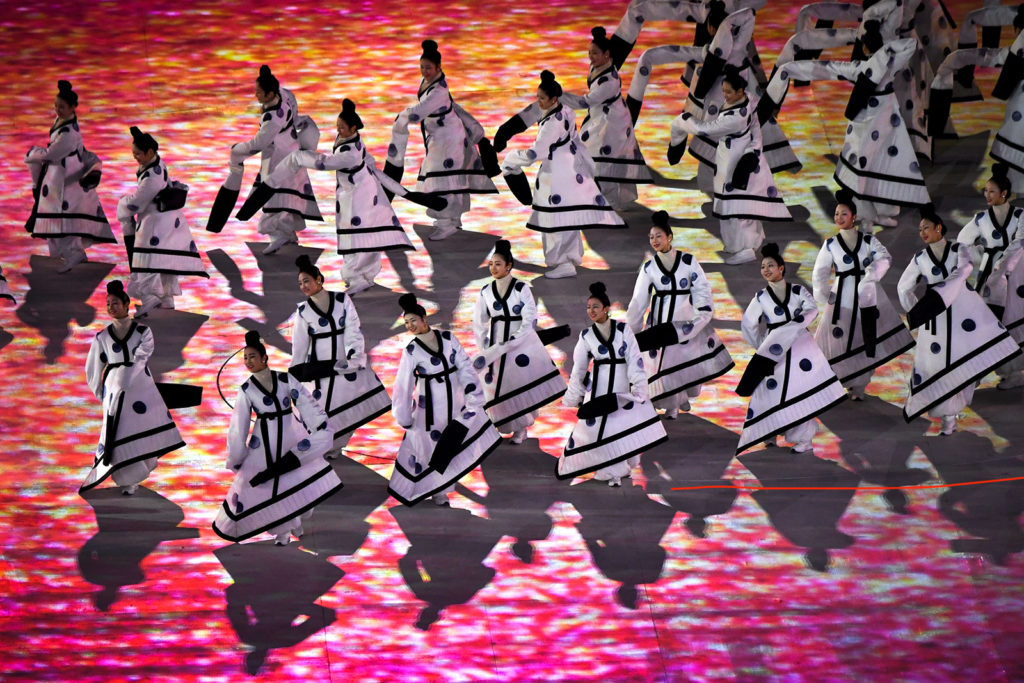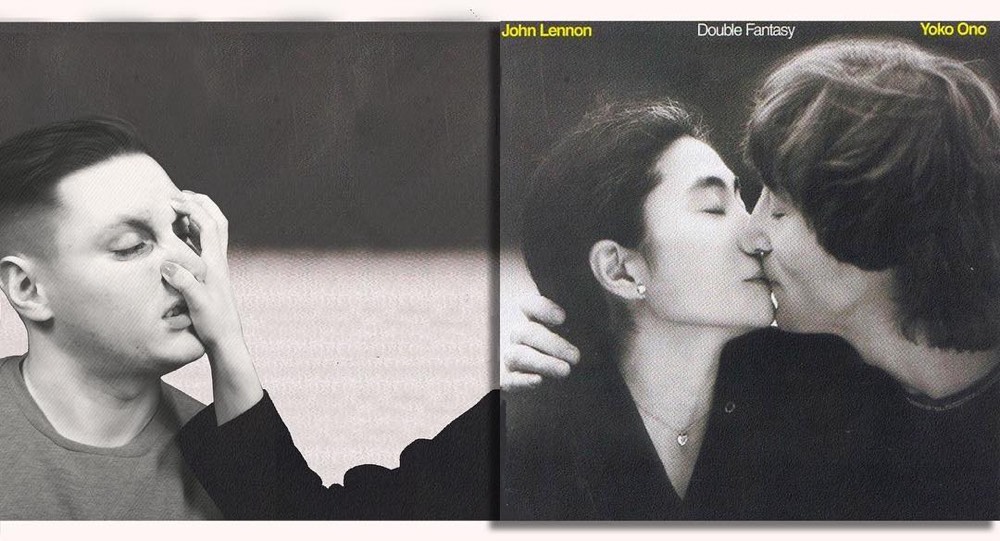
1. With the Olympics now underway in Pyeongchang, let’s begin with a powerful piece that looks back at the 1988 Games in Seoul and the deadly attempt, by the Kim Il Sung regime, to prevent them. 115 people were killed at the hands of elite agent, Kim Hyon-hui, a young woman who been “groomed” as a North Korean “warrior.”
Yet thirty years later, after her arrest and subsequent pardoning, she now lives a quite different life:
Kim’s life speaks to the disorienting contrasts on the Korean Peninsula, where the Olympics can be peaceful or deadly, unifying or dividing, and where a terrorist can become a housewife who says she’s excited to watch the 2018 Games on TV. “In North Korea, I lived as Kim Il Sung’s robot,” Kim said in an interview. “In South Korea, I got to live a new life.” […] Kim says that her deadly role in the bombing of Korean Air Lines Flight 858 is something that leaves her sorry and ashamed. “Can my sins be pardoned?” she said. “They probably won’t be.”

It’s a peek behind the curtain at the hidden humanity in what seems to be one of history’s most inhuman conflicts. Kim Hyon-hui is now a church-going mother of two, who spends her time trying to forget her past.
It seemed, initially, that there would be no second part of her life. In 1989, a South Korean judge sentenced her to death. But the next year, South Korean President Roh Tae-woo pardoned her, saying that she had been a mere tool manipulated by the real perpetrators, North Korea’s ruling Kim family. She mostly escaped the wrath of the South Korean public, according to news accounts from the time, helped by a tearful news conference she gave in apologizing for the bombing. After the pardoning, she wrote a book, “Tears of My Soul,” donating the proceeds to family members of KAL Flight 858 victims… Her husband, whom she married in 1997, was one of the first people she met in South Korea — one of agents handling her case.
There’s currently a lot of commentary about the Koreas’ display of unity at this year’s opening ceremony. Amidst this, one thing Christians can be sure of — offensive as it may sound — is that Kim Hyon-hui’s sins were pardoned, along with yours, and mine. They were pardoned a long time ago, before they were committed, and even before we were moved to apologize. Before we had anything to say at all, we had “an advocate with the Father, Jesus Christ the righteous; and he is the atoning sacrifice for our sins, and not for ours only but also for the sins of the whole world.” (1 John 2:2).

2. Cards on the table: there’s no good way to segue from North Korea to Jimmy Buffett, but that’s just what I am going to do. Here’s a somewhat humorous, and at times poignantly generous, profile by Taffy Brodesser-Akner from The New York Times: “Jimmy Buffett Does Not Live the Jimmy Buffett Lifestyle” (ht BJ). His reputation (and 550 million dollar fortune) issued from that trademark persona of “chill”…but actually managing such an estate is anything but that. Behind the scenes, he rarely takes a moment to breathe:
The problem with “management in place” is that you can employ great people, but Mr. Buffett is still the lone occupant in the Venn diagram of People Who Outearn Bruce Springsteen and People Who Are Mistaken for Men of Leisure. The work ethic his family instilled in him when he was growing up in Alabama means that he can never really hand the wheel over to someone else. “I think it was just the way I was brought up in a seafaring family,” he said. “I wanted to be in charge, like a captain of the boat.” […]
Mr. Buffett came into the national imagination in the 1970s, just in time to become a counterpoint to what would end up being called the Yuppie generation. What if you didn’t work that hard?, he dared to ask. What if your ambition was not for success or money but for the in-betweens: the vacations, the frozen cocktail in the evening? His emphasis was on the essentially Buffettian notion that we’d all spend our lives on the beach splayed out on a towel, our lips caked with salt, if we could.

Actually good Valentine’s cards
I guess Buffett is often asking himself the same question his audience is: Why do we work so hard? And you’d be forgiven for thinking his songs, too, are all about leisure and fun. If you read his lyrics, things start to look pretty bleak:
…listen closer. “A Pirate Looks at Forty” is about a middle-age crisis wherein a man’s skills become obsolete before he’s ready to retire. “I have been drunk now for over two weeks” seems like a party lyric but it’s not — it’s a crushing one. “Cheeseburger in Paradise,” which he wrote after a precarious sailing trip, is about a cheeseburger, plain and simple, with a euphoric bridge that is just a list of condiments he loves. Where are our simple pleasures now, it asks without asking? Why has everything become so complicated? Why is life filled with so many things we don’t want and so few things we do?
But “It’s 5 o’Clock Somewhere” — a song he didn’t write but recorded with Alan Jackson and took out on tour — man, that one’s the real heartbreaker. Take away the jaunty island beat and you’ll find a song about a man who is so miserable that he can’t bring himself to return to work from his lunch break. “I’m getting paid by the hour, and older by the minute,” it goes. “My boss just pushed me over the limit.” The guy hasn’t taken a vacation day in a year. He knows that there will be consequences tomorrow, but he doesn’t care. He can’t face it for another afternoon. Just keep pouring those Hurricanes.
Has any pop star identified this particular strain of existential crisis better than Mr. Buffett?
But Parrotheads, and others (myself included), love this music, because in it there’s a real sympathy, a genuine understanding — and something like a promise. Kinda reminds me of Nate Mills’ wonderful reflection on the importance of nostalgia: Buffett’s “act” wakens us to a hopeful longing for a time when the only thing we’re asked to do is sit on a beach and enjoy a cold beverage.
Look beyond the MAMA NEEDS SOME WINE sign in the Margaritaville gift shop. Look beyond the beer cozy that says “Fins to the left, fins to the right.” This is no longer a business. This is a cause. Can you hear its anthem? You can hear the Parrotheads singing it from beneath their feathers; you can hear it in their hums.
3. Ok, this one is awesome: “Hasbro concedes to human nature with a special, new Monopoly: Cheater’s Edition.” To be released in the fall (ht SD):
In addition to the usual Community Chest and Chance cards, 15 different “Cheat Cards” will ask players to surreptitiously carry out sabotage and subterfuge missions throughout the game. If crafty enough to pull them off, successful players will get an infusion of cash or free properties. If caught, players will be forced to fork over money or even end up handcuffed in jail—literally attached to the board by a plastic handcuff… Cheater’s Edition is the first of any Monopoly game not to require a designated banker. And if no one’s minding the shop, well, human nature is a funny thing […]
Hasbro came up with the idea for the special edition following an in-house study of about 2,000 people, which revealed that (shocker) half of players attempt to cheat during games.
I mean, that is no surprise. Can anyone really say they’ve never cheated at this game?
4. From The Onion: “Elon Musk Offering $1.2 Billion In Grants To Any Project That Promises To Make Him Feel Complete”:
“Even after all I’ve accomplished in this world, there is still a gaping hole inside of me that no amount of innovation or entrepreneurship has been able to fill,” said Musk, who added that he would consider funding any initiative, in any industry, at any scale that might begin to close the ever-widening chasm at the core of his being.
(ICYMI: Elon Musk is Making Me Sad.)
Another humor piece, from McSweeney’s, hits home with Lent just around the corner: “I’m Not on a Diet, I’m Fasting”…“Girls diet, and I am a man.”
5. As various media outlets continue shedding light on the loneliness epidemic, Maggie Fergusson, for 1843 Magazine, provides more incredibly heartfelt commentary here. I would encourage anyone to read this one since we’ve all likely felt this loneliness, and its subsequent shame, at some point or another — maybe even now, and persistently. Fergusson’s article is pretty comprehensive, investigating loneliness among all social circles, single people, married people, young people, old people. Much of the piece looks at loneliness with regards to romance:
…the frantic search for romance may exacerbate the problem. “If one’s living in a culture where a lot of people are lonely,” [psychologist Adam Phillips] says, “there’s going to be a tremendous idealisation of relationships. People are going to want more from each other than they can give. It’s going to produce a compensatory dream of unbelievable ecstatic intimacy. And lots of things can be used to appease this – sex, for example. I think in our culture there’s a lot of sexualisation of loneliness. I think that’s what pornography is, in a sense: a despair about relationship, a despair about real exchange. And loneliness is fundamentally about someone’s belief in the power of exchange: whether we can give each other things that make a difference, whether we can make each other feel better.”

The catch-22 is, if you say you’re lonely, it only repels people. One interviewee contends that certain mental health issues seem fashionable; it may be fashionable, for example, to seem harried, to be in therapy, to be anxious or depressed — but not lonely. Loneliness is mostly just embarrassing, and shameful.
I met Laurence Freeman, a Benedictine monk and an internationally renowned teacher of meditation, in a quiet square in Islington, and was quickly struck both by his profound understanding of human nature and the distinction he made between solitude and loneliness. For him, loneliness is a “failed solitude”. In his experience loneliness contains a “terrible feeling of failure, and there’s shame in that. Lonely people feel they should be connected, and if they feel disconnected, alienated, then that must mean they’ve made a mistake – or that they’ve been pushed into this by fate, or by something they’ve done. This can often involve a combination of paranoia and a very high level of judgmentalism about others. So they’re trapped both ways: they feel judged and they’re also judgmental.” Solitude, he believes, is “the discovery and acceptance of your uniqueness. It’s not just having knowledge about yourself, it’s actual experience of being, which is what we taste in meditation … Solitude in this sense is the basis of relationship – entering into the solitude of oneself, one’s uniqueness, prepares you for deeper, more authentic relationships.”

https://kottke.org/18/02/whats-happening-just-offscreen-of-famous-album-covers
6. In the movies dept., I’ve heard Paddington 2 is great; I loved the first one. Here’s an insightful review by Tom Welty over at ThinkChristian:
Paddington’s story, though, is one of community: namely, adoption and family. Aunt Lucy’s initial kindness in saving his life and adopting him informs the whole film. In an early scene, Paddington encounters the other members of Windsor Gardens, where he lives with his adopted British family, the Browns. With each encounter Paddington offers a small act of service. […]
This transformative love all stems from the prologue where Aunt Lucy rescues and adopts Paddington. The Browns, Windsor Gardens, and the prison are not changed because Paddington is an exceptional bear who follows the proverbs of his Aunt Lucy, but because he has been loved.
Just as Aunt Lucy first loved Paddington and adopted him, so has God first loved us and adopted us into his family. “This is love: not that we loved God, but that he loved us and sent his Son as an atoning sacrifice for our sins,” writes John in his first letter. “Dear friends, since God so loved us, we also ought to love one another.” Not unlike Paddington Bear.
Strays:
- Switching the bi-weekly schedule up a bit, there’s a new Mockingcast out this week! RJ, Sarah and Dave talk Olympic forgiveness, resurrected Valentines and their favorite Wednesday of the year. Also, RJ drinks some free juice. Click here to listen.
- We’ve been loving Russell Brand’s new book Recovery. In this recent Facebook video, he basically walks through the whole book in about ten minutes. Choice words are used, fyi.
- Check out these 8 beautiful short poems by Christian Wiman, for Commonweal.
- You can bet your Mockingbird snailmail will be sporting these in the coming months! (Speaking of which, you can sign up for our mailing list here.) And ICYMI: What Happened After Mr. Rogers Visited Koko the Gorilla.
- Finally, this seems like some kind of metaphor. Anyway, enjoy your weekend, everyone!

COMMENTS
One response to “Another Week Ends: Pyeongchang and Pardons, Parrothead Existentialism, Monopoly for Cheaters, Solitude vs. Loneliness, Aunt Lucy’s Love, and More Recovery”
Leave a Reply













I watch the trailer Paddington 2 It is amazing beautiful and it gives moral in life to enjoy life and teach everyone. This is what i discover from the trailer.